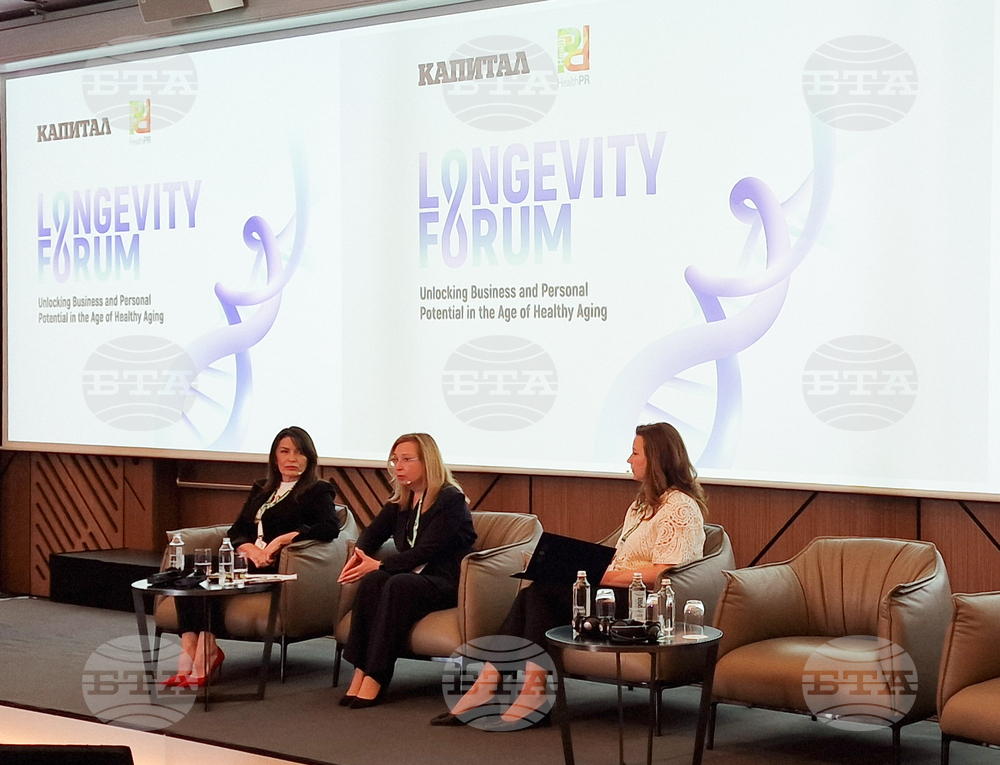site.btaLongevity Forum Discusses Ways to Optimize Pension System


A change in the pension model, increasing financial literacy and introducing a multi-fund model are the main themes discussed by Zornitsa Rusinova, head of the Economic and Social Council (ESC), Maria Mincheva, deputy chair of the Bulgarian Industrial Association (BIA), and Boryana Simeonova from United Health Insurance Fund “Doverie”, who participate in the Longevity Forum organized by Capital weekly.
Demography is one of the main prerequisites for the problems facing the country's pension system. In Bulgaria, the average life expectancy is 71.9 years and the European average life expectancy is 80.1 years. The main topic in demography is often how to increase the birth rate, and attention should be paid to all areas of socio-economic life - healthcare, education, infrastructure, social inclusion, etc. Besides lower life expectancy, Bulgaria is still almost at the bottom in terms of poverty levels, Rusinova said. The recommendation of the ESC is to reduce the serious imbalances in the different areas of development, as well as to reduce the imbalance in income, in access to public services, to education, as access to them has a direct bearing on demographic policy. Education is the direct path to higher incomes, which in turn guarantee a better quality of life, Rusinova added.
According to her, more efforts are needed to increase the financial literacy of the population, especially young people. Because of people's poor financial literacy, they can easily be misled with financial misinformation. Financial literacy should start from a very young age. Educational systems should enable the building of such skills that will not only support the next generation in life but also as a step towards marketable skills. To be able to develop multi-funds well, the first step for Bulgaria is to become a full member of the eurozone, the ESC chair added.
A broad political and public consensus on the pension model is needed, said BIA deputy chair Maria Mincheva. “The costs of ageing considered by the European Commission are the costs of pensions, education, healthcare and long-term care, and we rarely talk about them in aggregate. We are looking for quick fixes to small problems without systemic long-term solutions,” she added. BIA proposes to increase the number of people who are insured in the third pension pillar, because the data by the end of 2024 shows that more than 4 million people are insured in universal funds, about 630,000 people in additional voluntary funds, and less than 10,000 in professional schemes, Mincheva said. “By the end of the year, we expect a lot of initiatives aimed at the retail market and how citizens can invest their savings and here the role of pension funds is quite large. For the introduction of the multi-fund system in pension insurance, we expect in the coming years to talk about real actions that will offer people the opportunity for higher incomes, and multi-funds are such an opportunity,” she added. According to her, when the issue of the funds collected in the "Silver Fund" is raised, it immediately becomes political.
Financial literacy at European level is estimated at 18%, which means that only these people can perceive and analyse financial information and know what to do with it, Mincheva said and pointed out that there will be meetings with students on financial literacy, employment contract, bank account, payment order, loan, quick loan, etc.
“In the long term, we propose that the system be scanned for loopholes allowing multiple transfers of funds from one fund to another, and in our opinion, this possibility should be a one-off,” said Boryana Simeonova, director of pension insurance company "Doverie". The issue of income remains important because in Bulgaria over 90% of people's income comes from salaries or pensions, with nearly 60% of income coming from salaries and 30% from pensions, she added.
/YV, MT/
news.modal.header
news.modal.text